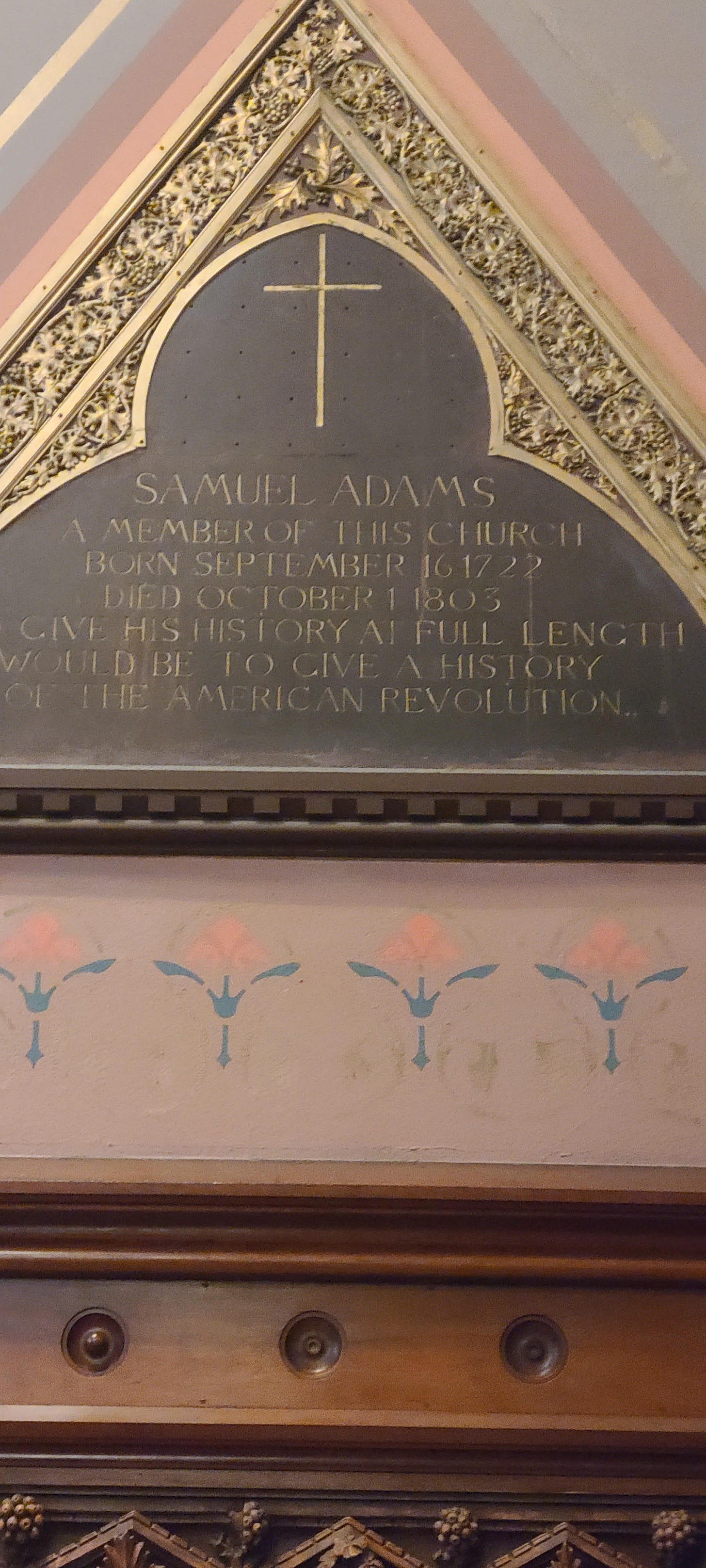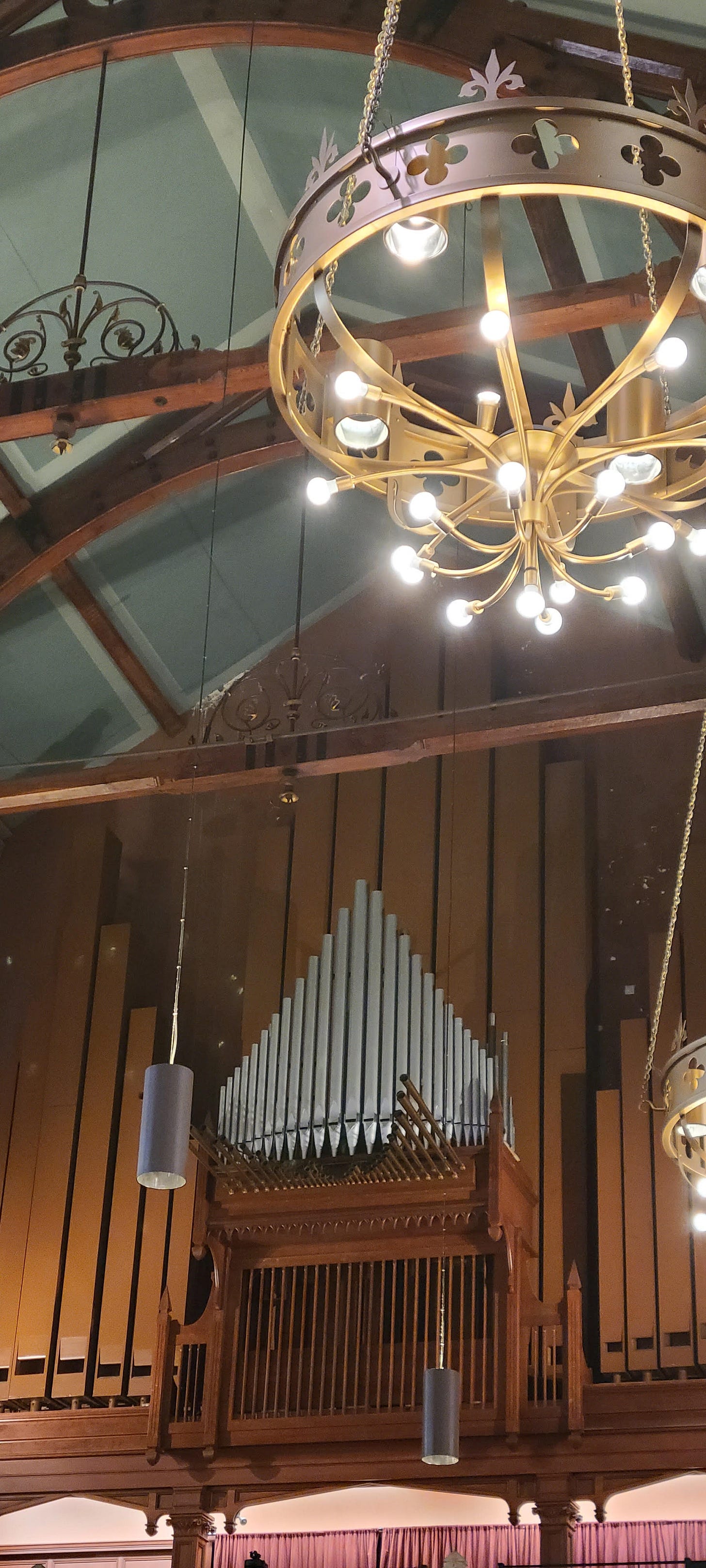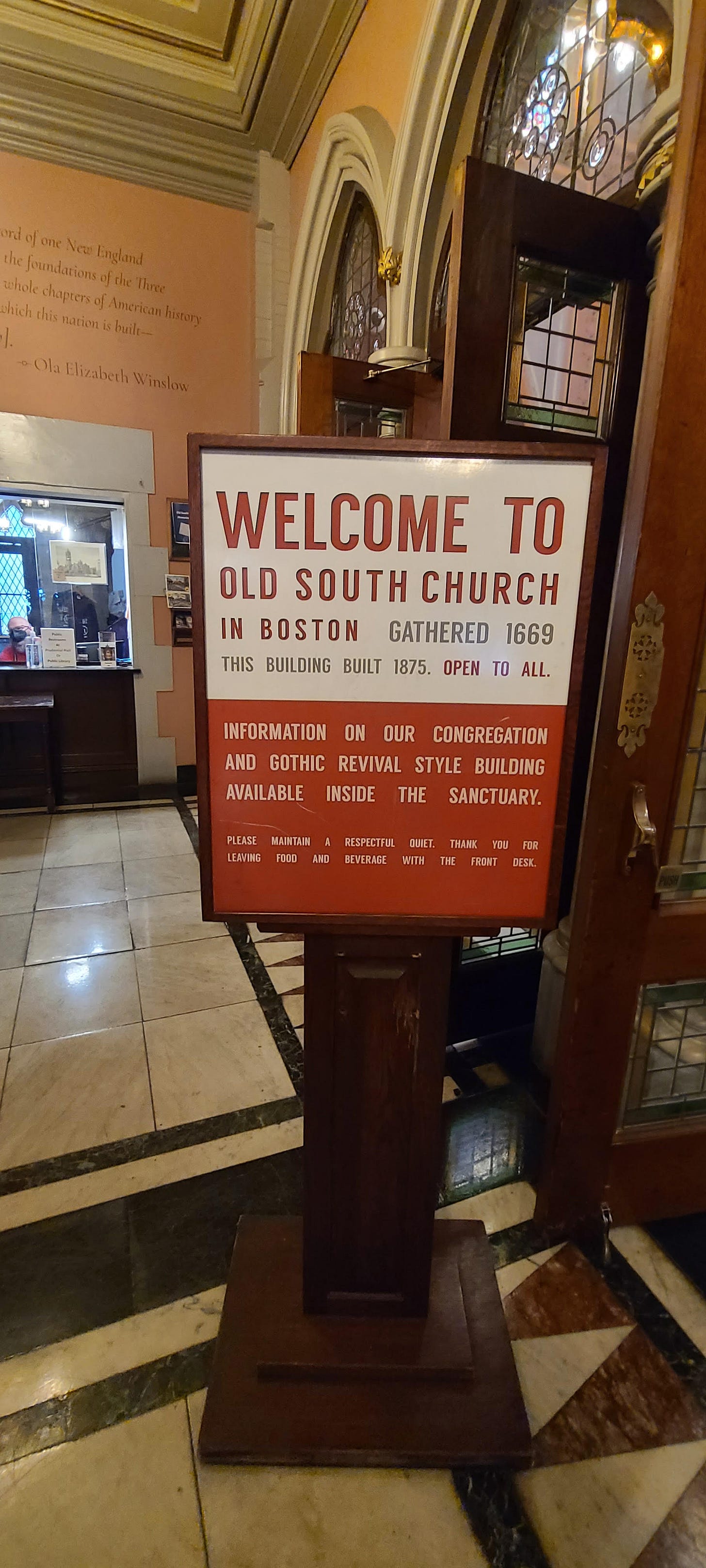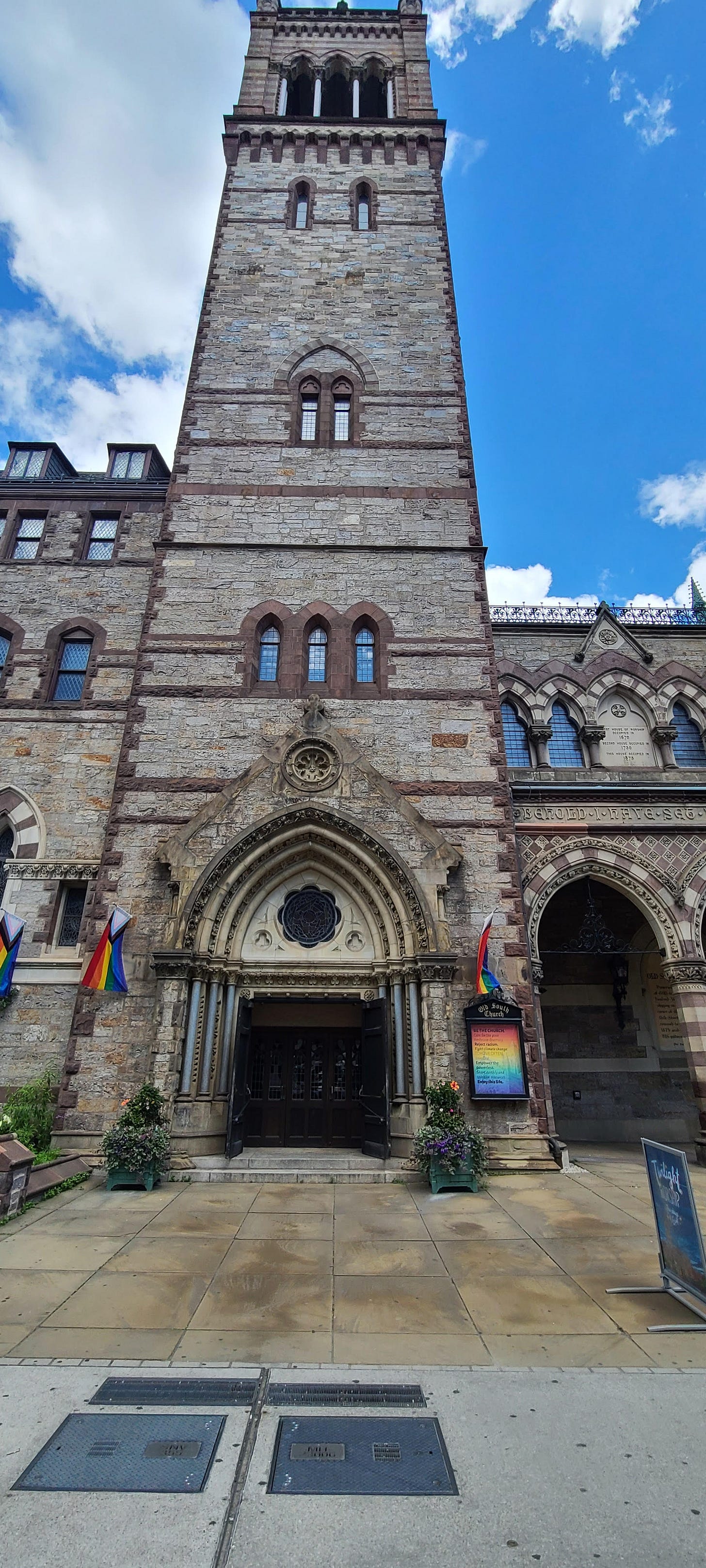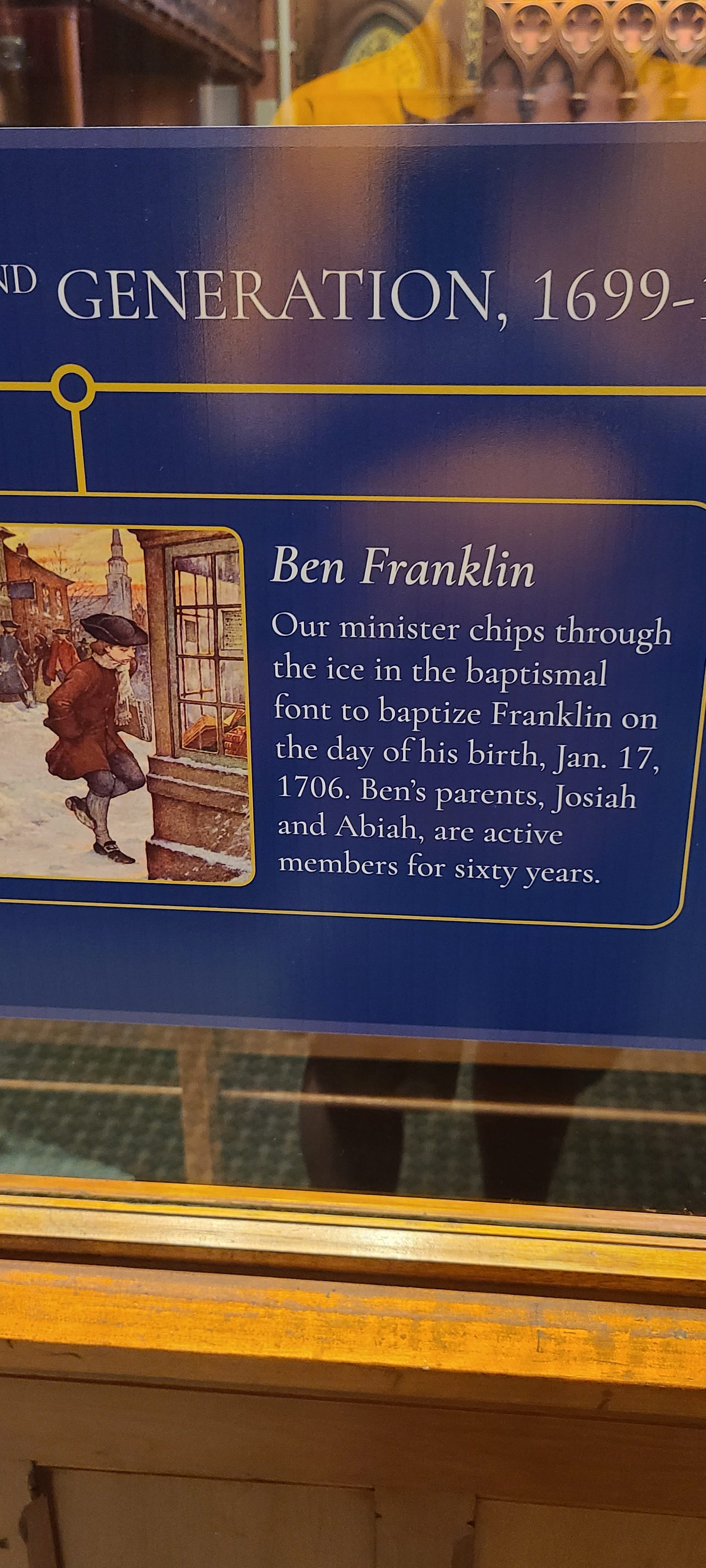I visited the Old South Church in Boston, MA. Their website describes them as theologically progressive, but most people in my circles would call them liberal. I read over their mission and vision. It is posted below:
“What we’re all about
WELCOMING
As recipients of God’s radical love, our doors are open to everyone. Bearing God’s Good News, we welcome all ages, genders, sexual orientations, races, ethnicities, classes, marital statuses, physical or mental abilities — we believe that all people are made in the image of God.
WORSHIPING
We believe that worship is no benign activity. It is intended to radicalize us, change, and form us into the followers of Jesus. Worship is our most elemental and formative work, renewing us, challenging us, and creating space for the rituals that mark the seasons of our lives.
GROWING
Whether through sacred text, searching conversations, book groups, or listening from the pews, we nourish learning and growth at every age. We are curious and open, exploring big questions together while remembering that no one has all the answers.
SERVING
As an urban church, we minister at the intersections of great affluence and even greater need. From here, we take our faith into our community and the world. We welcome all who enter, offering resources for doing justice, practicing kindness, and walking humbly with God.”[1]
I spoke with an individual who worked at the church. He said that they are Congregationalists.
“Congregationalism is a Protestant movement within the Calvinist tradition that occupies a theological position between Presbyterianism on one end and the Baptists and Quakers on the other. Through the years, Congregationalists have adopted various confessional statements, including the Savoy Declaration, the Cambridge Platform and the Kansas City Statement of Faith.
Unlike Presbyterians, Congregationalists practice congregational polity (from which they derive their name), which holds that the members of a local church have the right to decide their church's forms of worship and confessional statements, choose their own officers and administer their own affairs without any outside interference. Congregationalist polity is rooted in a foundational tenet of Congregationalism: the priesthood of all believers. According to Congregationalist minister Charles Edward Jefferson, this means that "Every believer is a priest and ... every seeking child of God is given directly wisdom, guidance, power". Consequently, there is an absence of godparents, since the whole congregation is the godparent to all the children in the church.
Congregationalists have two sacraments: baptism and the Lord's Supper. Unlike Baptists, Congregationalists practice infant baptism. The Lord's Supper is normally celebrated once or twice a month. Congregationalists do not use the sign of the cross or invoke the intercession of saints.”[2]
As I read the mission and vision of the church, I remember that the atmosphere inside was very reverent and welcoming; I believe them to be true to their beliefs. The church structure was magnificent. The outside was beautifully laid out in perfect architecture. It reminded me of a Medieval Castle. It is self-described as Gothic Revival style. The inside was a quaint, old-fashioned liturgical look and feel to a church. It had pipe organs and old pews. They had hymnals to sing from the books. Also inside, you could see the beautiful stained-glass windows and the various chandeliers along the high vaulted ceilings.
I found it interesting that Samual Adams attended this very church. Ben Franklin was baptized in this church. I also loved the historical fact that they welcomed various slaves during the Great Awakening to this same church. In true progressive fashion, they welcomed the most unwelcome individuals at their start. I believe that many churches should still be this way. Too many have gone the way of Christian Nationalism, and this has allowed their thought process to be exclusive instead of inclusive. The Gospel is very inclusive. It is welcoming to everyone. We should let everyone know, and if they need “changing or fixing,” I honestly believe that the Holy Spirit that put me on a solid foundation can do the same for others.
Overall, this church was as beautiful as older liturgical churches. Modern Evangelicals would avoid a church like this in the South. They would be labeled as liberal at best and not Christians at worst. My visit to these older churches has shown me that there was a time when we believed that churches should be beautiful and crafted well. There was also a time when we were more welcoming as a society.
It would behoove us to enter a time again where we are more loving and compassionate with the Gospel. We hold it tightly in the American South since we believe we are the called and chosen of Christ, and everyone else who does not think like us is not a Christian believer. I ask any reader of this article to allow the God we serve to change our hearts, begin to love more deeply and understand better that we are all different and that Christ died for all of us!
[1] https://www.oldsouth.org/mission-vision
[2] https://en.wikipedia.org/wiki/Congregationalism





